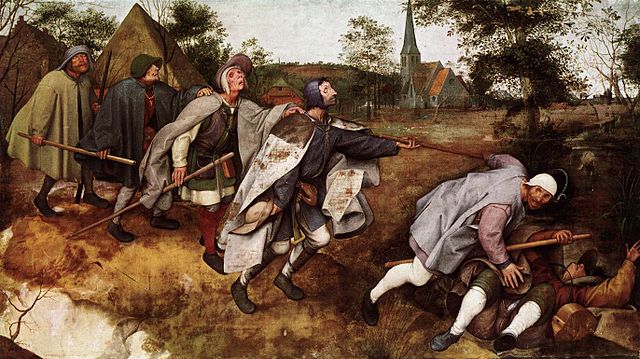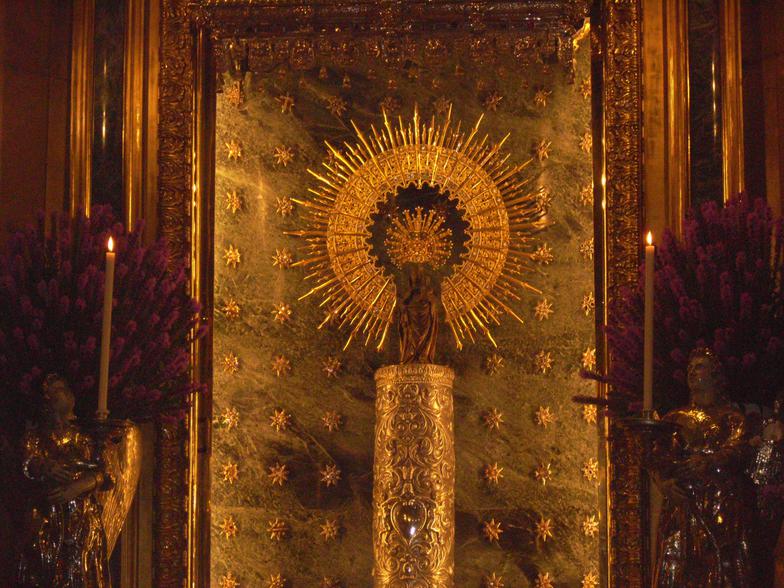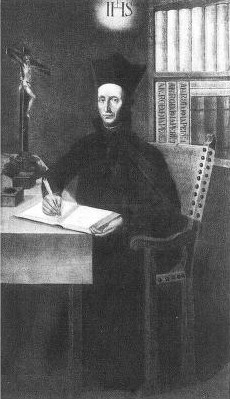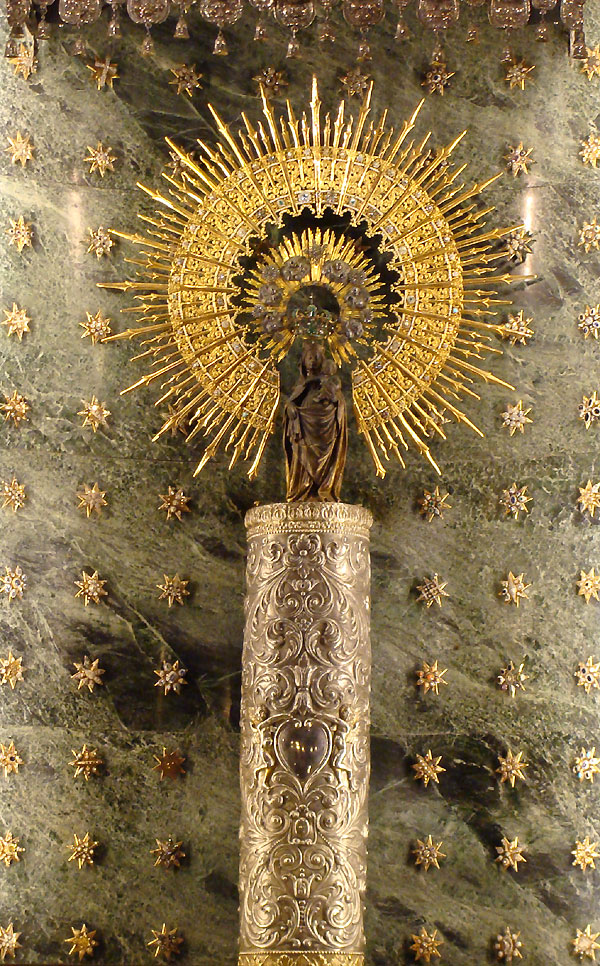Continuing the focus upon the essential nature of a stout prayer life, I recall a friary time. We spent a week at a seminary in Minnesota. Father David Mary worked with the seminarians in workshops, while we brothers were offered a week of Moral Theology lessons from a priest serving as head counselor and professor of the undergraduate sophomore class. Our final Sunday, Father David Mary performed mass, providing an entertainingly inspiring homily for the young men starting their second year of undergraduate studies. A main point father firmly established was that the young men at this early stage in their career must initiate a vigorous prayer life, a spiritual foundation. He stressed an hour a day dedicated to personal prayer was essential. The hour took precedence, never being justifiably missed. It was a must. The young men had to develop a rich interior life based upon daily one-on-one time with the Lord. Before the Eucharist preferably, the aspiring priest must put aside lessons, reading, and concentrate upon Divine intimacy. The Divine Office did not count. The young men must ignite their own individual prayer life. Once out in the world as a full-fledged priest, understanding Bishop Sheen’s insight that a priest is not his own, the young men would need that hour to strengthen themselves. Later as a working priest, the hour of personal prayer must maintain imperative importance. It would become their refuge, their solace and security, their place of comfort. Without it they would be soldiers marching into battle naked and unarmed. Under the strain of priestly life, it would be too late to develop the necessary prayer life if matters had not been tended to during seminary days. The stress, responsibilities, and demands of the priestly life could only be countered by a strong prayer life. As contemplatives living in the world, we must take example, comprehending that without a rigorous prayer life we are defenseless. Without a prayer life we are not contemplatives. Not a single day can be missed. We are not part-time soldiers. We are more than daily recipients of the Eucharist, or intelligent and articulate readers of books–knowledgeable collectors of religious information, more than a quoter of saints. Full-time and fully engaged, we endure toward Christ, surrendering to faith, hope and charity through an uncompromising prayer life.. All this in order to serve God better, and thus our fellow man, including those trudging through the harsh strain of purgatory.
Monthly Archives: December 2014

The Immensity of Prayer Through the Church
Once again back to my mother’s country of Spain: Santiago de Compostella

Necessity of a Sound Prayer Life
The. glorious Apostle and Evangelist. St. John, in the fifth and eighth chapters of the Apocalypse, expresses admirably well the excellency and merit of prayer. ‘There came an angel and stood before the altar, having in his hand a thurible of gold, to whom was given much incense, to the end he should offer up. of the prayers of the saints upon the golden altar which was before the throne of God. And the. smoke of the incense of these prayers went up from the hand of the angel to the presence of God’ (Apoc. viii. 3, 4). St. Chrysostom says that one proof of the merit of prayer is· that in the Holy Scripture, it alone is compared to thymiama, which was a composition of incense and of many other admirable perfumes; for as the smell of well composed thymiama is very delicious, so prayer also, when well made, is very acceptable to God,. and gives great joy to the angels and all the citizens of heaven. Thus St. John, speaking in such human language as we can speak, says that those heavenly beings hold in their hands pouncet-boxes full of admirable perfumes, which are the prayers of the Saints, and these they apply again and again to their most pure nostrils to enjoy that sweet odor (Apoc. v. 8).
St. Augustine speaking of prayer says, ” What more excellent than prayer? What more useful and profitable? What sweeter and more delicious? What higher and more. exalted in the whole scheme of our Christian religion?
–St Alphonsus Rodriguez ‘On Christian Perfection’
Without a prayer life we are left abandoned to our own devices, imperfect creatures able to access only self-will, functioning and interacting with the world based upon our terms. Without prayer, genuine humility is impossible, spiritual progress only induces pride, leading us to believe we are spiritual superiors, tyrants onto the world. No matter the amount or extensiveness of our efforts to know God, without a prayer life, the true means of communication is blocked. Our spiritual life is stifled and we become a danger to those advancing toward God. Centered upon self-will, plagued by self-consciousness, competition, the need to impress, selfish intent; whether positive or negative, we are constantly an affront, never able to offer others Our Lord, the ultimate master of prayer, His invitation to ‘take upon My yoke, and learn, for I am gentle and humble in heart, and you will find rest in your soul’. Without prayer, we weary ourselves, forced to rationalize, forced to justify, forced to reason, forced to manipulate, forced to be a burden onto ourselves and all those willing to love us. With the purest of intent, functioning through self-will we fall short. We bring immense and intense tears onto ourselves, and others. In the ancient world, they used the term crocodile tears, huge tears shed through profound sorrow. I attribute the term to Homer. It always moved me. Another Homer term I borrow is ‘winged words’, words possessing immense inspiration, hope, and insight–I adapt the term to embrace words inspired by the Holy Spirit.
To reiterate, a lacking prayer life renders one unable to surrender to faith, hope, and charity, unable to prosper within infused virtues.
The Blindness post touched on remaining hidden as a contemplative, as well as, identifying those of suspect religious intent as possessing a hidden agenda. They are two distinct matters. As a contemplative, my interior life is protected, hidden, ‘cast not thy pearls before swine’. My natural self an employee, friend, man in recovery, father, brother, son, remains open, comfortable and easy for others to understand. My hidden contemplative efforts do not make me a mystery to others. I make myself vulnerable to others, placing myself at their disposal, while protecting my interior life. I am not overly clever, nor diabolical. I go to the extreme not to inflict self-will upon others. In regards to bringing others into intimate spiritual communication I exercise extreme caution. The telltale sign of affirmation is the witnessing of a fortitude in prayer. A strong prayer life, a presence developed, indicates a healthy spiritual person of advanced effort. Without words, manipulation, or awesomeness, such individuals present themselves in humility and peace. I am especially leery of church devotees overly ambitious to throw themselves at me, coming on hard to impress, making great claims of being a daily communal recipient for a vast number of years, knowing the Bishop or esteemed individuals of respected religious reputation, telling tales of great pilgrimages, or dominating congregational responses and song with brilliance and expertise. Once serious progress is made in prayer such individuals will force themselves upon contemplatives. In politeness, and if necessary sternness, I must safeguard my interior life. I am reminded of a lesson from my therapist, a Catholic psychologist, Dr. Lawrence Nitcha. I utilize all forms of healing in order to cleanse the vessel for proper filling.
Dr Nitcha on co-dependent behavior: …difficulty establishing and maintaining appropriate boundaries, difficulty saying “No”, acting ‘nice’ when a tougher love is called for, and feeling overly responsible for the feelings or behavior of others.
Sadly, many Christians fall into the trap of justifying such behaviors as being examples of the call to ‘love one’s neighbor’. A variety of Gospel passages, each emphasizing the Christian call to service, is used to legitimize such behaviors. However, their use more often represents a distortion of the Gospel message.
One of the Gospel parables to which I frequently refer in helping individuals realize their rights is Matthew 25:1-13, the parable of the 10 Virgins. In that parable the behavior of the five Wise Virgins is highlighted as exemplary. And what is the behavior they displayed? It is the antithesis of codependent behavior. When asked to share some of their lamp oil with the Foolish Virgins, the Wise Virgins in effect responded: “No. We are keeping what we have for ourselves. We are not sharing what we have with you.”
On the surface their response can seem downright cold to some. Uncaring. Certainly seems ‘un-Christian’. But it is not! The Wise Virgins were simply remaining committed to their fundamental call to be ready for the bridegroom. Despite the pain, suffering, and panic experienced by the Foolish Virgins, the Wise Virgins remained resolute. They had been prepared with enough oil for their own lamps and to have shared their oil would have put the Wise Virgins at risk of failing to live up to the primary call they had received. They were not being selfish; they were exemplifying enlightened self-interest.
Undoubtedly the Wise Virgins experienced some anguish over the Foolish Virgins’ situation. Yet, they were not disinterested and cold in their refusal to share. No hostility here! Quite the contrary, they came up with an idea: “Quick, go to the market and buy some oil.” In other words, take responsibility for your selves; follow the call you were given. Well, too little, too late for the Foolish Virgins. The parable does not discuss how the Wise Virgins felt seeing the Foolish Virgins miss the wedding procession, but I imagine that they felt sad. Not guilty (that would be codependent) – they did nothing wrong. But sad! A sadness with the accompanying experience of powerlessness in the realization that they had been helpless to prevent the results of the Foolish Virgins’ poor planning.

Pater Noster

Blindness

A previous quote posted touched upon the difficulty, in reality near impossibility, of embracing authentic humility. The complexity of the interior life provides irrational thoughts, leading to behavior, deluding one into assuming he is humble, when in truth, he is pulling the wool over his very eyes, blinding himself. I recognize situations in my own life. It is truly too easy to assume I am self-effacing when in actuality I am doing everything to impose my will, just being clever enough about matters to allow myself the luxury of positioning and perceiving myself as a man of God.
The area I concentrate upon humility intensely is my prayer life. I go to great extreme to ensure authenticity during times of prayer. Utilizing all my faculties, I doggedly cut away errors in humility, aware acutely of the existence of false humility. I am determined not to allow cleverness to impede upon my prayer life. Under such an extreme effort, I plead with God to provide true humility, comprehending through Him all things good are manifested, all things created by God are good. Left to my own devices arrogance, rationalization, and delusion will always be a part of my life.
I want to observe a friend, a dear friend I respect to the highest spiritual degree—a true man of accomplished prayer. Avoiding judgment, understanding lessons can be garnered from others, he serves as a good example. My good friend has lived a lengthy life dedicated to religious study, daily mass, a moral life, works of corporal mercy, and a proficient/blessed prayer life. Yet continual intimate interaction with him has placed me in difficult situations. One involved a visiting priest from Poland, a devout, intelligent young man, personable and an extreme pleasure to encounter. I learned a lot through the interaction. It was difficult, yet now I see contemplatively essential for growth.
The uncomfortable must always be a part of my spiritual life. If I seek affirmations, I blind myself. I recall a statement I heard once about the Church. The Church is at its best when it disagrees with me. When the Church agrees with me, I am prone to pride and the pursuit of selfish endeavors. I am too quick to assume a self-proclaimed authoritative role. My pride will try to pass myself off as a Bible scholar, or some other type of religious expert. I am at my best when I am content within my simple and imperfect role of hidden contemplative, a man of prayer, active within the world. When the Church disagrees with me, it is confronting spiritual incongruities. I must challenge myself not to become defensive and self-justifying, rather figuring out how to change in order to grow closer in intimacy with God. The Polish priest staunchly confronted my spiritual life.
I really did not want to become intimate with the priest, respecting St Liguori’s insistence that priest are to be held reverent in societal interactions. We must not approach a priest as a buddy, as just another member of the Knights of Columbus, another member of the lodge, someone to speak with daily regarding casual affairs. A priest is not my spiritual equal. He ranks in closeness to God. I am an inferior to a priest. It is no insult.
My friend, Paul, older, took it upon himself to welcome the young priest to our Polish parish. Paul spent all of his time attending to the priest. He took command of the priest’s off day, scheduling day trips, events and people to meet throughout the city. He insisted I accompany him. On my own, I would have never pursued such matters. I hardly spoke, never feeling comfortable during this casual time spent with the priest. My intuition screamed something was amiss.
There were other errors in my life. My residence living amongst a community of artists committed to secular and worldly ideals a serious encroachment upon my weaknesses. I fell victim to my strongest demon. A drinking binge of horrendous nature enveloped my life. I managed to pull myself together, seeking the priest out not as a friend, not as a spiritual equal, rather as a priest. I needed him to witness my tears, to absolve me of my sin, to assist me in assembling a life of order and the means to pursue the God I knew in my heart I loved. My life is extreme in the regard that if I do not open myself and love God completely I collapse in such a self-destructing lifestyle it is pitiful to witness. The pain I will wreak upon myself, left to my own devices, is an absolute abhorrence.
I was actually told I should be grateful for my condition for its graveness forced me to seek drastic solutions. The cross I must bear does not allow me to function if its not handled austerely. I relate it to a story I read many years ago, a sensational novel about the infiltration of the Church by dubious forces. Details and title of the book elude me. An idea within the story struck me as profound, sticking with me. Two investigating priest were discussing various priest and church officials during a massive gathering, attempting to determine who was aligned with demonic forces. The one investigating priest pointed out several priest he found fault with. The wise leading investigator pointed out the error of his speculation. The priest singled out had faults: a severe temper, an egotist, a tendency to drink too much, a glutton, human weaknesses too easily to perceive. The insightful priest stressed those men were apparent. Their faults identifiable. It was not such type of men they sought. The men with obvious faults were all too human. These priest knew their faults, working diligently to overcome them. Failing at times, the priest of obvious weaknesses endured the battle against their personal demons. Amongst the gathered, the penetrating investigating priest pointed out the priest who caused him consternation. The priest were intelligent, lacking no discerning faults, yet their personality remained vague. They were men convinced they were not lacking. These self-deflecting priest could not be pinned down. One was never truly sure who they were. Their strongest beliefs and motivations remained a mystery. One was not sure where their hearts truly rested. The enigmatic priest worked hard to make good impressions, people pleasers, always saying the right things, while never committing themselves to definitude. Those were the men the insightful investigating priest was confident they must be on guard against. The men of hidden agendas were truly the men to be leery of.
My faults come cross harshly and abrasively. I feel I am a good man, yet certain ugly truths about myself must be accepted. Spiritual growth for myself comes from conquering myself. The road narrows as I progress, yet that challenge I am primed for. It is my gross demon: alcoholism, I fear. It is the one thing that can topple all things.
When I fell, the Polish priest took me strongly under his wing, supporting me, assisting me in arraigning a lengthy rehab stay. He told me of firsthand experience with alcoholism in Poland, within his own family. Explaining the ravishing nature of alcoholism during communist years, telling how officials, harsh on other infractions, looked the other way regarding severe drinking. The people miserable and drinking themselves into a stupor served communism well. Regarding myself, while we set rehab conditions into place, I can remember distinctly, a film festival occurred amongst the artist community I abode within. I was off to the races, playing the Jack Kerouac, Nick Cave, existential fool I can be. My efforts hurt the priest. He removed all pleasantries between us, refusing to show kindness toward me. His justified wrath forcefully sank into consciousness, wounding me severely.
My friend also encountered difficulties during the time. A white haired soft-spoken Lebanese man of obvious spiritual advancement, he insists upon commanding spiritual respect. His spiritual reputation means everything to him. Daily, he makes the rounds of hospitals, visiting the sick, providing favors. Every Friday he visits nursing homes, praying a Rosary and Divine Mercy at three O’clock with residents. His retired life is concentrated upon religious service and prayer. However a glaring complexity emerged during the time of the visiting Polish priest. His wife, waiting upon a lung transfer, became conspicuous in her absence. His wife was being tending to by his son. In and out of nursing homes, due to physical limitations and frailties, her condition became critical. Dedicating all of his time to the Church, Paul ignored his wife. He disappointingly expressed to me the sad reality that his wife brought it upon herself due to her choice to smoke cigarettes during her youth. The coldness and annoyance he displayed when his successful adult son called him regarding attention for his wife’s condition disturbed me. I feel the picture is defined clearly enough.
The Polish priest also took strong opposition to Paul, expressing severe disapproval of both of our applications of faith. He gave a powerful Friday mass, an evening mass for a solemnity I cannot even recall. The Gospel reading contained the words: Can a blind man lead a blind man? Will they not both fall into a pit? Sitting in the back hiding, the words penetrated to my heart. He spoke directly to myself and Paul, emphasizing the lack of need to be a world problem solver when charity must first be firmly established in the home. The absolute necessity to put our own house in order if we are to grow in Christ. He spoke out about being a religious know it all, a political expert on all matters worldly, a busybody within the church, stressing that God was not going to give us a final exam upon judgment day. God will want to know how we lived. Did we love and care for others? Where, truly, was our heart? Were we enigmatic and difficult for others to comprehend? Were we precise in our efforts to conquer ourselves? In humility, did we serve God or was it all about self-glorification, was everything an imposition of self-will? The Polish priest brought tears to my eyes, giving a homily of immense power, the congregation realizing they witnessed something special. I could only sit stunned after mass. The young priest walked over to me, extending his hand. I complemented his homily. He invited me to see him off. The courtesy and sincere humility he demonstrated to a man, who let him down twice, was much more than a casual imprint. I remember walking with Paul to his home in complete silence after the accusatory homily. We knew we had been properly scolded from the pulpit.
During the sending off of the Polish priest, a time after daily mass, we gathered outside the church. There was a fairly large crowd of well-wishers. The majority of the gathering supplied by a single family. The family, home-schoolers, numbered twelve children, plus parents. I greatly admired the family. The mother is an astonishingly intelligent woman, so brilliant when speaking words burst forth in rapid succession. She can barely contain her thoughts they are so vibrant and accessible. Her boys serve expertly during the Latin mass. The Holy Spirit is strongly apparent within the family. The family displays a passionate pursuit of life and Christ. The Polish priest thoroughly enjoyed his time amidst the family. I held silence throughout the parting, keeping my words minimal and friendly. It was enough to simply be present. I saw how much the priest enjoyed the children, giving proper attention to all the attending.
I started writing this with the intent of touching upon the difficulty of applying humility to life. Advancing the focus to obedience to Divine Will, surrendering self-will. It is such a difficult process. Brilliant words from Church doctors, advice from others, nothing eases the burden of sacrificing the things I want the most for myself, especially not the things that I am convinced will allow me to serve God better. I will naturally impose my self-will upon the worship of God. I must surrender to faith, hope, and charity.

Prayer guidance from a master
There are two sorts of mental prayer; one common and easy, the other very special, extraordinary and advanced, something received rather than made….There is a very great difference between these two sorts of prayer: the former may in some pleasure be taught by words, the second we cannot so teach, because no words are able to express it. It is a hidden manna, which no man knoweth but him that receiveth it. Even the receiver cannot explain how it is, nor even properly understand how it is, as Cassian well deserves, quoting to this effect what he calls a divine and heavenly saying of the blessed St. Antony Abbot: ‘Prayer is not perfect as long as the monk at prayer is aware of the very fact that he is praying.’…we cannot express what this prayer is, nor teach it to others, but you must not seek to apply yourself to it, nor raise yourself to it if God does not raise you; apply you and lift you up to it. That would be great pride and presumption, and you would be deprived of the grace of prayer that you deserved, and be left without any. ‘He hath led me’, says the Spouse, ‘into His cellar’ (Cant., ii. 4). This entry which God gives to the soul into His privacy, and into His wine cellar, to sate and inebriate her with His love, is a most particular gift of the Lord: the Bride did not go in by herself, no, not until her beloved took her by the hand and led her in. The lifting of yourself up to the kiss of His mouth is not a thing you can or ought to do, unless He Himself lifts you up. It would be great impertinence and audacity…
–St Alphonsus Rodriquez, ‘On Christian Perfection’.
The well-known Jesuit, Brother Alphonsus Rodriguez, used to say his Rosary with such fervor that he often saw a red rose come out of his mouth at each Our Father and a white rose at each Hail Mary. The red and white roses were equal in beauty and fragrance, the only difference being in their color. –St. Louis De Montfort ‘The Secret of the Rosary’

Nuestra Señora del Pilar
A post in honor of my parents. I spent quality one-on-one Christmas time with my mother. My father passed away this year, in the fall. My parents were married in my mother’s hometown of Zaragoza, Spain. My father, a United States Air Force man at the time, and mother were married at El Pilar Basilica. Their marriage endured through fifty plus years.

 The image of Our Lady of the Pillar is a wooden statue decorated with gold; it is about fifteen inches high. The crown adorning the head of the statue is very intricate. It was made in forty-four days by thirty-three workmen; in it there are 2,836 diamonds cut triangularly, 2725 roses, 145 pearls, 74 emeralds, 62 rubies and 46 sapphires. The crown of the Infant is identical with that of the Virgin, except in size.
The image of Our Lady of the Pillar is a wooden statue decorated with gold; it is about fifteen inches high. The crown adorning the head of the statue is very intricate. It was made in forty-four days by thirty-three workmen; in it there are 2,836 diamonds cut triangularly, 2725 roses, 145 pearls, 74 emeralds, 62 rubies and 46 sapphires. The crown of the Infant is identical with that of the Virgin, except in size.
The history of this particular statue of Our Lady is unique and interesting. It is said that in the year 40 A.D. the Virgin visited the Apostle Saint James while he was at prayer one night on the shore of the Ebro River in Zaragossa. Mary was standing on a column of marble, and she gave St. James her effigy, requesting that he build a chapel in her honor. Saint James complied.





Recent Comments